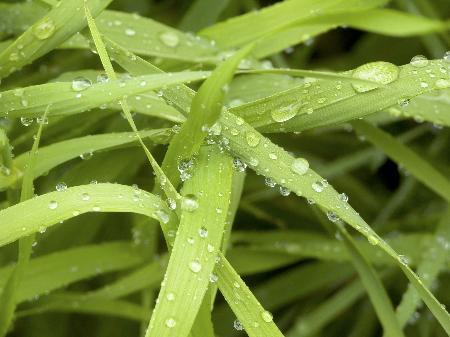Progressives like me would love to credit global warming for the terrible rains North Texas has experienced in the past weeks. Such a connection would continue to energize the environmental movement and would give credence to claims that global warming and irregular climate patterns may be man-made. That’s why I was elated last year when I discovered that TCU’s “theme semester” would be “Think Purple, Live Green.” To me, this announcement indicated that our university would dedicate itself to making sure we were truly ahead of the curve when it came to sustainability. I don’t know what this year’s theme is but from the looks of it, it may be “Think Purple, Waste Water.”
The administration’s decision to make sustainability the theme for the year as well as the public relations push that accompanied it encouraged me to believe that this clarion call would be coupled with a lot of follow-through and serious dedication to the cause. On the surface, and for some part of the year, I believed the university made serious strides. The catchy name and green initiatives like the expansion of the Purple Bike Program, the Physical Plant’s purchase of a small fleet of electric mini-trucks, and the “Think Purple, Live Green” sustainability pledge on the theme semester Web site contributed to my belief. However, it seems to me that our university failed at the simplest form of sustainability: water regulation.
Fort Worth and most cities in North Texas have enacted water restrictions that prohibit watering, unless by soaker hose, hand-held hose or drip irrigation, from 10 a.m. to 6 p.m. As someone prone to insomnia, I can attest that the university does abide by these water restrictions and that sprinklers dutifully turn on after 11 p.m. Unfortunately, there have been some instances when sprinklers near the Walsh Center for the Performing Arts and between the Ballet Building and Palko Hall have turned on in the afternoon.
It may be safe to assume that these occurrences reflect some sort of glitch in the system, but for a university that spends an impressive amount of money and time advocating a cause such as this, one would think a system to report sprinkler issues would have been part of the campaign for sustainability. In addition to watering during the hottest parts of the day, the sprinklers that turn on during the night tend to soak the grass and, at times, water the sidewalks. During the first part of the rains that flooded the Metroplex, some of these very sprinklers turned on at their regular times. Likewise, I was shocked to see the majestic Frog Fountain flutes pushing water into the pool while we experienced monsoon-like conditions.
It’s not too late for the university to amend these problems and live up to the standards set last year. A notification system should be set up for students, faculty, and staff to inform the Physical Plant about sprinkler and other watering issues. In addition, students living on campus can practice sustainability by using proper green laundry tips like washing in cold water or doing laundry only when you have a full load. Finally, everyone should go to the theme semester Web site to sign the sustainability pledge and to see how we can live better, greener lives. In doing this, we can help prevent water waste on campus and truly be ahead of the curve.
Bennett Parsons is a junior music education major from Arlington.

